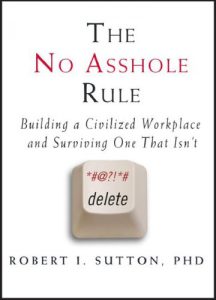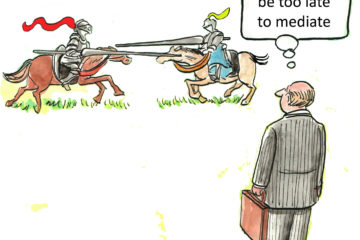First posted by John Faisandier on 27th June, 2011
Last week I was given a book to read called “The No Asshole Rule: Building a civilised workplace and surviving one that isn’t” by Robert Sutton.

The author, a university professor from Stanford, has used this attention-grabbing title to sell over half a million copies. Reluctantly I started to read it, and my worst fears were realised!
The basic premise of the book is the author calling someone an asshole if they display a number of non-social behaviours. The very first behaviour on the list is personal insults. Ironically the author himself fails on the first count by wanting to insult people who, for whatever reason, have been under-socialised and act in challenging ways at work.
Rather than see the other person as the problem, using the TUF principles, we can see them as having needs that they don’t know how express clearly.
Difficult customers or difficult colleagues are first and foremost people who have a need. If you label them as ‘assholes’ you are depersonalising them and making it hard to respond to them in a constructive way.
While there is some useful information in this book on the cost to businesses of having difficult people working for them, and a number of suggestions about what to do with difficult people, the foundation of the book is flawed.
For conflict resolution, dealing with difficult customers, managing emotions in the workplace and holding crucial conversations it is always best to start with heart, treat the other person as a person, not as a fundamental orifice or any other disparaging body part.
Conflict
Anatomy of an Altercation
How the APE principle is hard to put into practice sometimes.
